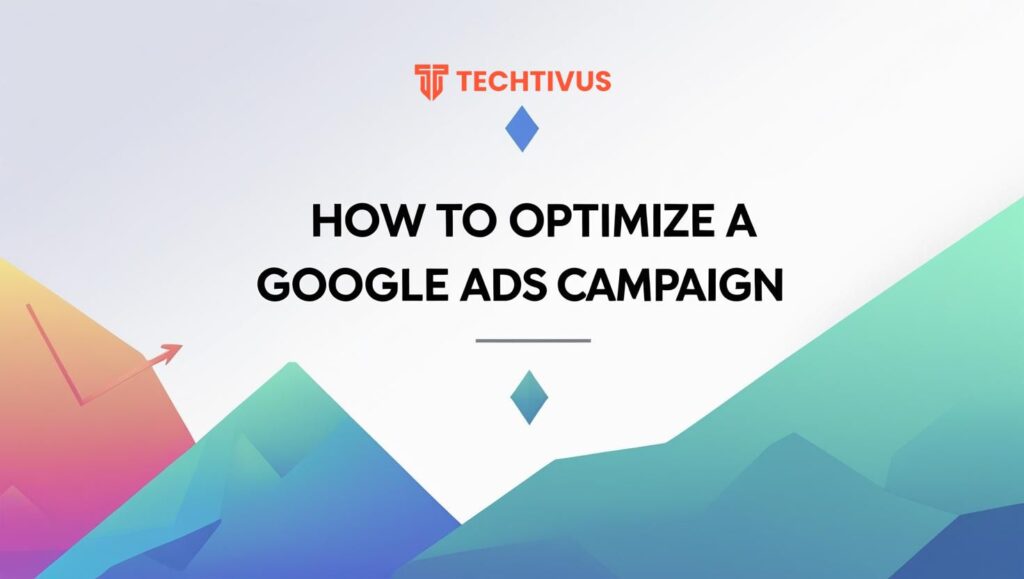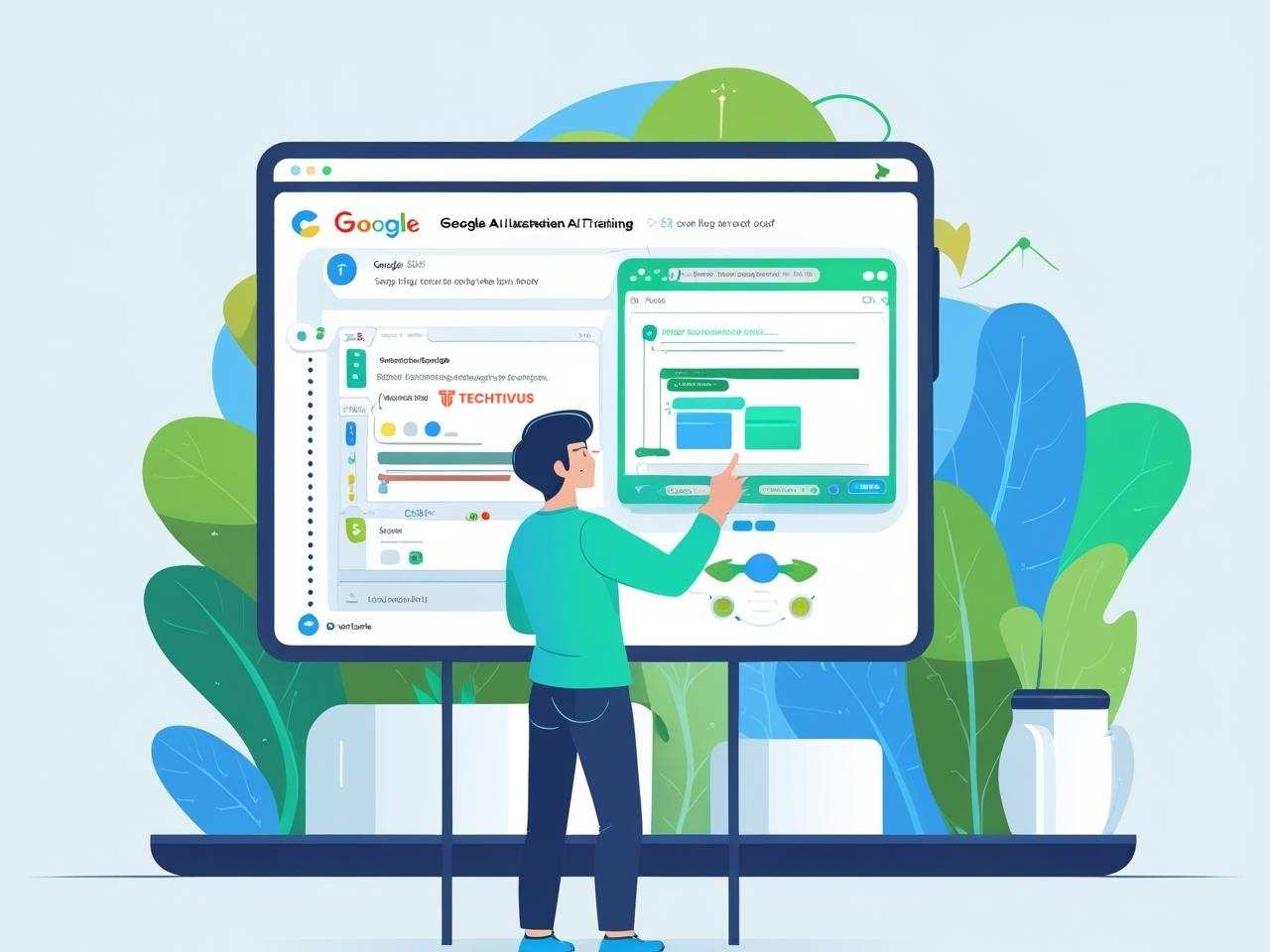Wondering how to optimize a Google Ads campaign? We will show you how to do it and why most Google Ads campaigns fail.
The truth about scaling Google Ads campaigns
The big difference between campaigns that scale and the ones that sink?
It has nothing to do with your keywords, targeting, or bidding strategy.
📌 The real problem happens in the 8 seconds after someone clicks your ad.
Let’s break down what’s really going on—and more importantly, how to fix it.
How to Optimize a Google Ads Campaign – Step by Step

🧨 Chapter 1: Your Website Is Where Profits Go to Die
Most advertisers lose conversions not because of bad ads, but because of bad landing pages.
Here’s what happens:
- A user clicks your ad…
- Lands on your website…
- Gets confused or overwhelmed…
- Leaves without buying.
✅ If your landing pages aren’t structured properly, you’re lighting your ad budget on fire.
👁️ Chapter 2: You’re Not Seeing the Full Picture
Let’s say someone clicks your ad, adds something to their cart, and leaves.
Three weeks later, they Google your brand and buy directly.
🧠 But on your Google Ads dashboard, it shows as “Lead Lost.”
That’s bad data—and it’s costing you real money.
According to research on hundreds of ad campaigns, most profitable customers don’t buy on the first visit.
In fact, they touch your brand 6–20 times before buying.
So when you pause a campaign after 3 days of no conversions?
You might be killing a future winner.
📊 Chapter 3: Funnel Economics – Why Some Campaigns 10x ROI
Ever go to the store for one thing and leave with ten?
That’s not an accident—it’s engineered.
E-commerce works the same way.
Let’s compare two businesses:
🚫 Business A: Basic Approach
- Sends traffic to a simple product page
- Offers no upsells or cross-sells
- Has a basic checkout
- No email capture or follow-up
📉 Conversion rate: ~2%
✅ Business B: Engineered Funnel
- Leads users through a multi-step funnel
- Captures emails and sends nurturing sequences
- Shows upsells and bundles
- Offers flexible payment options
📈 Conversion rate: 8% or more
💸 Let’s do the math:
- Both pay $5 per click
- A converts 2% → Cost per customer: $250
- B converts 8% → Cost per customer: $62.50
That’s 75% cheaper customer acquisition.
Engineered campaigns don’t just win—they dominate.
🔍 Chapter 4: The Google Ads Profitability Audit
So how do you engineer conversions?
We ran a study of 13,000 marketers and asked one question:
“Are your Google Ads profitable?”
Then we separated the winners from the losers—and here’s what the profitable ones do differently:
✅ The 9 Most Common Conversion Factors:
| Conversion Factor | % of Profitable Marketers |
|---|---|
| Use funnels (multi-step) | 59.9% |
| Multiple payment options | 58.2% |
| Email sequences for non-buyers | 47.9% |
| Multi-step checkout | 42.5% |
| Persona-specific copy | 35.6% |
| Smart remarketing (abandoned cart) | 33.4% |
| Video on landing pages | 26.8% |
| Long, descriptive landing pages | 21.5% |
| Influencer content/testimonials | 17.7% |
🚨 Most failing campaigns implemented 0–2 of these.
🧠 Most profitable ones had 5–7 in place.
🧠 Chapter 5: The Psychology Behind High-Converting Campaigns
Here’s why those 9 conversion factors actually work:
1. Funnels = Value Anchoring
Upsells feel like a deal because your brain is anchored to the original price.
2. Multiple Payment Options = Choice Architecture
Fewer objections = more completed checkouts.
3. Email Follow-Up = Mere Exposure Effect
6–20 touchpoints build trust and familiarity.
4. Multi-Step Checkout = Commitment Escalation
Micro commitments (name/email) increase the chance of completing the purchase.
5. Persona-Specific Copy = Identity Resonance
Speak to who they are, not just what they want.
6. Smart Remarketing = Relevance Framing
Show the right message to the right behavior—at the right time.
7. Video Testimonials = Trust Transfer
People trust people—especially those who look and sound like them.
8. Long Landing Pages = Cognitive Closure
Some buyers need details before buying. Give it to them.
9. Influencer Content = Social Proof Bias
Even micro-influencers build borrowed trust your brand can leverage.
🔧 Chapter 6: How to Build a Profitable Google Ads Funnel (Step-by-Step)
Here’s your implementation blueprint—broken into 4 phases:
🏗️ Phase 1: The Foundation (Week 1–2)
- ✅ Add multiple payment options (PayPal, Apple Pay, Google Pay)
Result: 15–25% increase in conversions - ✅ Set up email capture for non-buyers
Use exit intent popups or lead magnets to start nurturing sequences.
⚙️ Phase 2: The Conversion Engine (Week 3–4)
- ✅ Split your checkout process
Break it into steps. Add a progress bar. - ✅ Add social proof (testimonials)
Place videos strategically on high-friction pages.
🔁 Phase 3: The Optimization Layer (Week 5–6)
- ✅ Create persona-specific landing pages
Customize for small businesses, startups, enterprises, etc. - ✅ Smart remarketing
Segment audiences by behavior and retarget accordingly.
🚀 Phase 4: Advanced Systems (Week 7–8)
- ✅ Add upsells and cross-sells
Offer complementary products post-purchase.
🔄 Results Table:
| Before Optimization | After Optimization |
|---|---|
| 2% conversion rate | 8–12% conversion rate |
| $250 cost per customer | $50–$75 per customer |
📏 Chapter 7: You Can’t Improve What You Can’t Measure
If you’re measuring the wrong metrics, you’re killing profitable campaigns.
Here’s what to track instead:
1. Contribution Margin > ROAS
ROAS is revenue. Contribution margin is profit.
Track after product, shipping, and fulfillment costs.
2. Customer LTV > 30-Day Window
Track customer value over 12–36 months, not just 30 days.
3. Brand Search Lift
Monitor how many people start Googling your brand after seeing your ads.
🎯 Ads create demand. Even if they don’t convert immediately.
✅ Final Thoughts: The Google Ads Profit Center Playbook
Here’s what we’ve learned:
- 78% of marketers lose money on Google Ads.
- It’s not because of bad targeting or weak keywords.
- It’s because they ignore what happens after the click.
🧠 The winners use:
- Funnels
- Multi-step checkouts
- Email follow-ups
- Upsells and cross-sells
- Smart remarketing
- Psychological principles
- Proper measurement strategies
💥 They don’t just get more clicks—they extract more value from every click.
📌 Your Roadmap to Google Ads Profitability
- ✅ Know the 9 conversion drivers
- ✅ Understand the psychology behind them
- ✅ Follow the 4-phase implementation plan
- ✅ Measure what matters
Because knowledge without action? That’s just expensive entertainment.
Now it’s time to stop guessing.
And start engineering conversions that scale.
Ready to transform Google Ads from an expense into a profit engine?
Let’s make those clicks count. 💸
